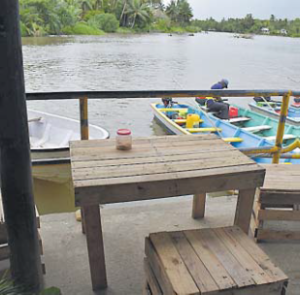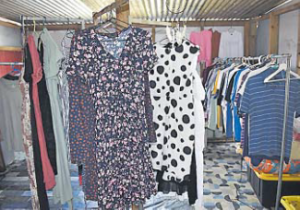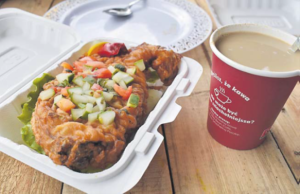THE empowerment of indigenous Fijian (iTaukei) businesses is a powerful tool in strengthening social, financial and cultural frameworks. It allows individuals not only to control their daily livelihoods, create jobs and secure their communities, but also to preserve and celebrate their cultural identity.
In doing so, it modernises traditional living standards by embedding financial literacy and entrepreneurial leadership into everyday life.
However, historically, business ownership among iTaukei has not always been prioritised.
There has been a prevailing belief that ownership of land and traditional resources was sufficient for survival, without realising that these could be leveraged for greater financial prosperity.
Yet, in recent years, change-makers such as Leone Nabaraki from Nasigatoka Village in Rewa is proving that iTaukei can thrive as entrepreneurs while uplifting their people.
This week, we explore Mr Nabaraki’s journey and his thriving food and retail business, which is based at Nasali Landing in Rewa.
His story began in 2005 after he completed his studies at Davuilevu and started his family life. Faced with the pressing reality of family responsibilities, Mr Nabaraki realised he needed to create a sustainable source of income.
“It was not easy, especially as newlyweds, we had to find ways to generate income quickly without formal employment or specialised qualifications,” Mr Nabaraki recalled.
By 2006, Mr Nabarakis began selling home-cooked meals to office workers around Nausori and so every morning, they would prepare a handful of dishes, package them carefully and deliver them by bus to be sold across town.
The couple expanded their operation, later acquiring a driver’s license and a second-hand vehicle, which allowed them to deliver food packs directly to offices in Suva.
They diversified their offerings, catering to late-night workers and dancehall patrons needing hearty meals after hours.
The dream was to one day establish a permanent food outlet to eliminate the daily transportation challenges.
In 2019, Mr Nabaraki approached his uncle to request a piece of land at Nasali Landing for his business.
The request was approved, setting the stage for his permanent food stall.
However, as construction plans began, the COVID-19 pandemic hit Fiji in early 2020, halting movement and drastically reducing business opportunities.
With fewer people on the move and restrictions in place, Mr Nabaraki quickly adapted, pivoting himself into selling clothes and basic household goods from home.
These quick adjustments helped sustain his family during the toughest periods of the pandemic.
“Sometimes, there were no buyers at all as many people were laid off, but you just have to keep trying,” he said.
When COVID restrictions were lifted, he returned to Nasali Landing.
Although the area lacked a proper retail structure, Mr Nabaraki steadily rebuilt his food and retail business, which now include tea blends, cooked meals, clothing and premix fuel for small boat engines, a necessity in the area as villages across the river from Nasali Landing are accessible only by boat.
Mr Nabaraki’s entrepreneurial spirit was nurtured from a young age when in his early 20s, he received a loan from the Fiji Development Bank and used it to buy a boat and to start selling premix fuel.
“Business was never new to me,” he explained.
“Growing up, I watched my elders work hard to support the household and through that, I always dreamt of doing my part.”
Even when his first boat broke down, Mr Nabaraki refused to quit, and he continued selling fuel and slowly rebuilt his savings.
Challenges however would persist.
Mr Nabaraki battled a serious, long-term illness which at one point forced his wife to run the business alone. Financially and emotionally, it was a devastating time. But they overcame.
In 2018 and 2019, Mr Nabaraki was selected to work at Acres Farm in Australia under its Pacific Australia Labour Mobility scheme (PALM).
His earnings were reinvested into strengthening his business operations back home.
“I’m grateful to God for that opportunity,” Mr Nabaraki said.
“It allowed us to upgrade our small food outlet into a proper kitchen and invest in other essentials for the business.”
The Nabarakis returned to Australia for another work stint in 2023, further growing their savings to expand their business.
Working overseas exposed Mr Nabaraki to advanced business practices that emphasised time management, productivity and financial planning—skills he is now applying locally in his business.
“In Fiji, we tend to have a relaxed approach to business. Working abroad taught me the importance of efficient operations. Each wasted minute is a lost opportunity,” Nabaraki noted.
Today, their business is a bustling hub at Nasali Landing, catering to early-morning commuters, boat drivers and surrounding villages.
His kitchen opens at 6 am, offering breakfast, tea blends and hot meals. By evening, it transforms into a casual gathering spot where kava (yaqona) is served—a secondary income stream that complements their fuel sales to boat operators who run 24-hour services.
Their kitchen now offers over 30 different food varieties from just five dishes when it started.
The business has also had a ripple effect on community development. Through the profits, Mr Nabaraki and his family support schools within the Rewa district, providing sports equipment, and educational supplies and responding to community needs.
Giving back has been a lifelong value instilled by the elders of his village and he is determined to continue the tradition.
“If we empower our youth early on with business skills, they won’t lose their way and that’s why we get them involved at the shop,” he said.
The Nabaraki family is now planning to acquire land for farming so they can grow their own produce to further reduce costs and enhance food security for their family and business.
Challenges remain. Transportation costs, weather disruptions, and fluctuating customer numbers make daily operations unpredictable.
Mr Nabaraki’s advice is: “Never let discouragement stop you. When challenges come, you just keep moving forward. Beyond hardship lies success.”






